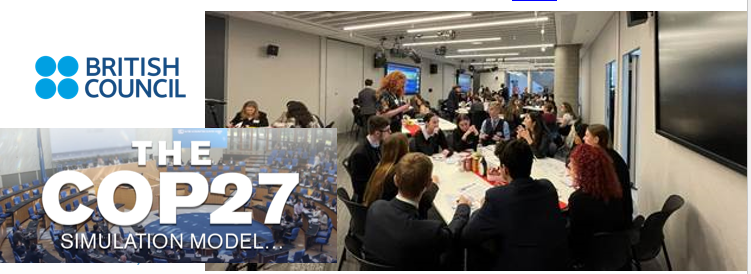Explore the Let’s Go Zero map to see where else teachers, students and school communities are taking action to become zero carbon by 2030.
Let’s Go Zero school action:
United Learning Trust, England

United Learning is a large national group of schools comprising academies and independent schools and covering both primary and secondary phases. The organisation aims to provide excellent education to children and young people across the country, seeks to improve the life chances of all the children and young people they serve and has as its mission to bring out ‘the best in everyone’ – students, staff, parents and the wider community.
In 2019, conscious that the lives and futures of children and young people will be profoundly shaped by decisions this generation makes affecting our climate and environment, leaders decided to commit to a substantial reduction in the organisation’s annual carbon emissions, towards becoming carbon neutral. They see it as both their duty and a moral imperative to ensure that operations are sustainable and avoid negative impact on the environment and climate. This is part of a wider strategic aim to make a great contribution beyond the group of schools, to have a positive impact on local communities, on the national education system and on the wider world.
United Learning has made a commitment to reducing its annual emissions by 50,000 tCO2e every year, which is equivalent to their baseline emissions estimated in 2019. Group-wide initiatives launched so far include:
- Switching to a 100% renewable energy provider for all schools in their trust.
- Introducing one ‘meat-free’ day a week in every school from 2023-24.
- Engaging and empowering students to take climate action.
Last year every school in United Learning was asked to create a climate action plan and act on three areas for sustainability. This year, after listening to feedback from the schools, the central team leading this work has simplified and prioritised areas with the biggest potential impact. For 2023-24 there are three ‘must dos’: reducing energy use, reducing meat consumption and food waste. Read on to find out more.
What are they doing in their school?

The group is implementing an Energy Policy, summarised as: ‘Turn it off, turn it down, and shut it down’. This promotes conservation through three key actions: reducing heating usage, turning off lights, and powering down ICT equipment. The Group also runs an annual Energy Saving Week in January (over seven full days, including the weekend) which helps promote energy saving practice. Among the week’s activities is an annual challenge celebrating which school can reduce their energy consumption the most across the week. In 2022-23 the winning school had reduced energy use by 18%.
The Group has also completed decarbonisation audits for all its schools. These inform decisions about where and how to invest capital funding in areas such as boiler replacement or installation of solar panels, including in relation to applying for public grant funding.

The engagement of young people is a key strand and the group is encouraging schools to get young people to think actively about how, together, we can address and prevent climate change. Many United Learning schools having an eco-group or a sustainability focus as part of their student council remit.
Last year 100 6th form students from across 15 United Learning schools took part in a COP27 simulation event in partnership with the British Council. Students played the part of world leaders, Non-Governmental Bodies (NGOs) or Media representatives and were tasked with taking part in a real-life climate simulation, producing a global agreement to reduce greenhouse gas emissions. This is being expanded to two COP28 Simulation Events this year (one in the north and one in the south) to increase the number of students that can take part.
The Group has also launched a new secondary Social Action Programme that empowers young people to adopt a ‘Think Global, Act Local’ approach towards environmental and social causes they care about. This is delivered in collaboration with The Dirt Is Good Schools Programme and the University of Oxford.
United Learning has a common group curriculum. In 2022-23 the group launched a new United Curriculum for Primary Sustainability, following a review. A similar approach is planned for secondary in 2023-24 to exemplify where sustainability can be embedded in subjects including geography, science and PSHE and also in the co-curricular offer to students.

Two thirds of United Learning’s carbon footprint comes from scope 3 Purchased Goods and Services (PG&S) related emissions. With over 20,000 suppliers, the group has a complex supply chain. Work is underway to reduce this number and streamline the procurement process for schools, whilst promoting ‘conscious consumption‘ and greater awareness of how the choices we make about what we buy and consume have an impact on the environment and society as a whole. The central team has begun to develop a procurement framework which will firstly focus on reducing consumption and then will aim to go onto create a ‘green directory‘ or a ‘preferred suppliers‘ list across all major areas that schools buy from.
An early area of focus is the provision of meals to pupils and staff through the group’s catering contracts. One of the ‘must dos’ for 2023-24 is the introduction of one ‘meat-free’ day a week: schools and caterers have flexibility about how this is implemented locally. The central team has produced guidance on how to engage students and staff in this area as well as parents to help everyone have a productive conversation and open dialogue about the environmental impact of meat consumption. United Learning is also working with catering contractors to reduce food waste and gradually increase the amount of carbon-related information available to pupils and staff when making choices.